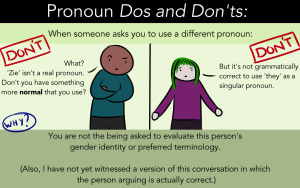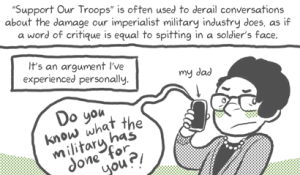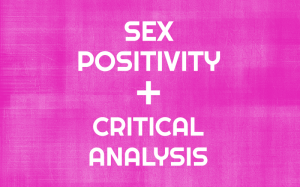For almost my entire life, I felt as though I couldn’t trust my own memory.
If something happened that upset me, hurt me, or angered me, my reaction was often met with some variation of “That didn’t happen! I never said that! You’re overreacting!”
I would think to myself, “Am I making this up, am I creating this hurt, am I fabricating this anger?”
Parents and partners alike would deny my experiences, washing away painful memories as if I had simply painted them for my own amusement.
I started to think that maybe I really was “too sensitive,” that I really was overreacting, being unfair, blaming others for something that was happening inside of me.
And that’s a confusing, frustrating, and even dangerous place to be.
Because after years of being told that your memory is not reliable, you begin to depend on what others say truly happened. Nearly every time I felt angry or hurt, it was the person angering or hurting me that I believed had the “real” knowledge of what had transpired.
And even in the moments when I began to believe myself, I’d feel a pulling in my brain: “You’re hurt—no, you’re just imagining things” or “You’re angry—no, you’re just too sensitive.” This tension nearly pulled me apart.
But one day, I pushed back.
I had gotten into a huge argument with a family member. As per usual, this family member entered my home making homophobic comments as hellos, which then escalated to a full-blown argument.
It was me against Fox News and her mouth, and it ended with both of us leaving angry – and me spending Christmas with someone else’s family.
When this argument ended, I was told I was the instigator (even though I remembered simply reacting); I was told I was the one who was being hurtful (even though I remembered being hurt the moment the conversation began). Suddenly the world shifted, and again what I remembered seemed to be only in my own head.
But I caught it this time. So I stood my ground – and eventually, those who told me I was the instigator admitted I had actually been the victim.
Later that night, when I called my partner to vent about what had happened (and to let them know I would be spending Christmas at their place), they stopped me mid-conversation and asked: “Do you know what gaslighting is?”
And that changed everything.
Wait—So What Is Gaslighting?
In short, gaslighting is a form of psychological abuse “in which information is twisted or spun, selectively omitted to favor the abuser, or false information is presented with the intent of making victims doubt their own memory, perception, and sanity.”
Essentially, gaslighting is a tactic used to destabilize your understanding of reality, making you constantly doubt your own experiences.
Most of the time, this tactic is used to further uneven power balances with abusive partners, making you second guess yourself when you feel as if you are being abused or attacked.
Even if a relationship seems otherwise non-abusive, gaslighting is emotional and mental violence. This process in and of itself is toxic and unhealthy, regardless of whether there are other abusive behaviors taking place within the relationship.
Furthermore, gaslighting is commonly used to discredit the lived experiences of mentally ill and neurodivergent folks, which is both abusive and ableist.
In my own personal experience, it’s been used to make me feel as though all of my anger was rooted in my mania, and that all of my reactions to people doing me harm were overreactions.
For example, the most pervasive form of gaslighting I’ve experienced in my home is the “blame everything on the ‘mental illness’” approach. It’s as if because I experience mania, I can never be justifiably angry; or because I experience depression, I can never be sad or hurt about something outside of myself; or because I am neurodivergent, that mine is always the last account to be taken seriously.
This means, for instance, that if I ever got angry or upset about the fact that members of my family habitually called me by homophobic and ableist slurs, making me unwilling to spend my time with them, I was simply having a manic break and that all of my anger was me “exploding” and being manic.
Or if I was uncomfortable spending time with friends or family members that didn’t respect my boundaries or identities, I was simply “letting my anxiety get the best of me” – and, again, when I got angry about the fact that this was happening, it was blamed on my mania.
The thing about gaslighting is that it’s an especially terrifying tactic because it makes the victim feel as if they cannot trust their own mind, that their memories and experiences are not valid or trustworthy, that their reactions are illogical and irrational.
For people who already have a fluid perception of reality, this can make you feel as if nothing you take in is real or can be trusted.
And this mistrust in yourself also makes it extremely difficult to identify when you are the victim of gaslighting.
So, How Can I Tell If I’m Experiencing Gaslighting?
One of my biggest motivations for writing this piece is that I had gone my entire life being gaslit by parents and partners alike. It had gotten to the point that I questioned the validity of all my responses to violence, questioned whether or not I was capable of knowing when I was being abused or not, and had begun to think that maybe every instance of abuse I’d experienced really was all in my head.
But then I was told about gaslighting – and everything started to zoom into perspective for the first time in a very long time.
So, how can you tell if this is happening to you? Here are some questions that you can ask yourself.
1. Do You Question the Validity of Your Memories and Experiences?
Gaslighting puts you in a position where you don’t trust what you remember or what you experience.
Thus, one of the biggest red flags that you’re experiencing gaslighting is that you’re quick to question or outright dismiss your memory of a situation.
If you are in an involuntary habit of second guessing things that you remember, especially memories that involve abuse or hurt, you have most likely been put in a position where you have been conditioned to second guess yourself.
2. Are There People in Your Life Who Actively Discredit Your Memories and Experiences?
Gaslighting is the process of others conditioning you into distrusting your own sense of reality.
There are many phrases that you may hear over and over that have led to you distrusting yourself, such as:
“You’re too sensitive.”
“You never remember things correctly.”
“How would you know? Your memory is awful.”
“You’re always making something out of nothing.”
“You weren’t right about this last time.”
“You can’t even remember [where you put your keys/where you parked the car/what you had for breakfast]. Why should I trust your memory of this?”
“You don’t even know what abuse is.” (Or “You have never seen real abuse.”)
If people in your life are using phrases like these ones to convince you that you’re wrong about what you remember and how you feel, you may be experiencing gaslighting.
3. When You Call Someone Out on Hurtful or Abusive Behavior, Are They Quick to Dismiss Both You and the Situation?
Another way of belittling someone’s experiences and memories is to outright dismiss claims of hurt or abuse.
This includes diverting the conversation, ignoring what you’re saying, and refusing to engage in a conversation about things that have hurt you.
Some red flag phrases for this dismissive behavior are:
“Why do you always have to bring this up?”
“I’m not dealing with this nonsense right now.”
“I [worked all day/am tired/have more important things to deal with] and don’t have time for this shit.”
“You’re ruining my night.”
“Shut up. Nothing happened.”
In fact, words aren’t the only way to dismiss someone. Scoffing, eye rolling, smirking, laughing, and removing themselves from the room and the conversation are other ways that people can show disregard for your feelings and needs.
4. When You Try and Bring Up Hurtful or Abusive Behavior, Do They Immediately Turn It Around and Play the Victim?
Another way to manipulate someone into thinking that they’re not experiencing harm or abuse is to constantly turn the conversation towards the abuser, making it seem like you are doing harm by even bringing up what’s hurting you.
If someone in your life cannot (or will not) let you speak to your experiences, and instead insists on turning it into a conversation about themselves, the conversation is not a healthy one.
Some red flag phrases for this tactic are:
“You always make me out to be the bad guy.”
“Constantly bringing stuff like this up makes me feel bad/is hurtful to me.”
“I’m actually the one hurting.”
“You don’t know what abuse is. Saying that I’m abusive is hurtful to me.”
“Pretending I’m hurtful/abusive makes you the bully.”
If these phrases are a constant in your life, if you feel like you’ve been conditioned into mistrusting your own memories and experiences, you have most likely been the victim of gaslighting.
So, What Can I Do?
Now that you understand what gaslighting is and maybe identify with it, it’s time to think about how you can work through and change the situation.
But how?
1. Recognize It
The most important, and sometimes hardest, part of dealing with gaslighting is realizing that it’s happening.
If you start to think that you’re experiencing this, go over the warning signs. Make sure you know what the red flags are. And when you’re put into situations where your experiences are dismissed or belittled, start looking for these warning signs.
Take note of the people in your life that make you feel this way.
When you try to bring up feelings of hurt or anger, see if you can take note of particular phrases or behavioral patterns that could indicate that you are being gaslit.
If you start to realize that these phrases and red flags are present in your life, take note of who is saying them, and take note of how often they are being said.
Abuse is a pattern. And once you know how the pattern presents itself, it becomes easier to spot. Once you begin to become aware of this pattern you can start to build up your self-trust again.
2. Trust Yourself
This is much easier said than done.
When you’re a victim of emotional and mental abuse, it’s extremely difficult to put the pieces back together and relearn (or begin to learn) how to trust your own mind.
What can be the most helpful is to constantly remind yourself that these things are being done to manipulate you. Once you’ve spotted the red flags and the patterns, hold onto them. Remind yourself that this is an abuse tactic, and that will help you realize that your inability to trust yourself is not an objective truth.
Actively affirm your memories and experiences. When you’re being told that you “never remember anything right,” for instance, intentionally remind yourself that this isn’t true.
Positive self-affirmations are critical when learning to trust yourself again.
When you are experiencing gaslighting, try to think things along the lines of “I am capable of knowing what I saw/heard/felt,” “This is only being done to hurt me,” and “My feelings are valid.”
3. Push Back
Pushing back is something that isn’t always possible for people. Many people are in situations where they’re financially dependent on their abuser, are minors living with abusive parents, or are at risk for increased abuse and physical violence if they push back.
However, if you’re in a situation where you feel like pushing back is an option, go for it.
Call that person out on it. Let that person know that they’re actively dismissing claims you know to be true. Letting them know that you’re sticking to your guns and standing by what you remember causes the abuser to begin to lose power.
Some quick come backs to push back with include “Ignoring what’s hurting me is abusive,” “Dismissing my feelings won’t make me forget that you’ve hurt me,” and “I know you’re trying to manipulate me, but I stand by what I said/felt/heard/saw.”
These types of phrases bring attention to the patterns and behaviors that those who are gaslighting you don’t want you to see.
And hearing yourself validate your own feelings and experiences will also help you really learn to trust yourself again.
***
When you have this power – your own sense of truth – stripped away from you, it’s hard to feel like that voice inside your head can do anything but lie to you.
But those moments of tension, of pulling, of back and forth that occur? They happen because your brain knows what’s really true and is trying to tell you that you can be trusted – even through this manipulation.
You are strong. Your feelings are valid. Your memory is trustworthy. If you feel hurt, you have been hurt. If you feel angry, someone has upset you.
Your lived experiences are your own – and you have every right to feel through them and to react to things that have done you harm. You are worthy and capable of being able to trust yourself again.
[do_widget id=’text-101′]
Kris Nelson is a Contributing Writer for Everyday Feminism. They are a queer trans witch with a BA in Gender, Sexuality, and Women’s Studies. Kris runs a blog full of short queer-centric radical prose, which can be found at thequeertimes.tumblr.com and a poetry blog that can be found at songswithoutlyrics.tumblr.com. Kris also runs an online store by the name of Spell-Bound, where they sell handcrafted wire work jewelry, crystal pendants, hand sewn tarot bags, and pendulums. They can be contacted at [email protected] and trans-witch.tumblr.com.
Search our 3000+ articles!
Read our articles about:
Our online racial justice training
Used by hundreds of universities, non-profits, and businesses.
Click to learn more
Most Read Articles
- « Previous
- 1
- …
- 30
- 31
- 32




















